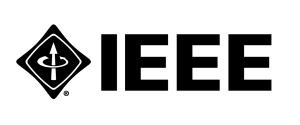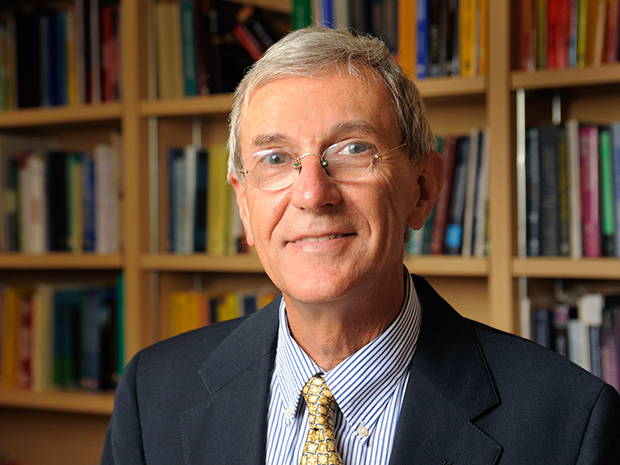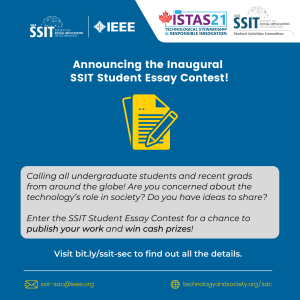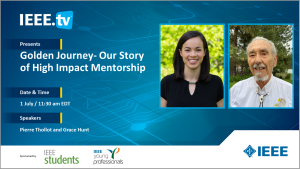Every year the IEEE Young Professionals dive deep in order to get the know the Candidates for IEEE President. This year three excellent candidates have been presented to us, so how do you decide who to vote for? Our short interview with all of the candidates should provide you with more insight. Our editor in chief, Eddie Custovic had the pleasure of meting all of the candidates and getting their opinion on a few important elements for our membership. Today we spoke to Jose Moura. He is best described by IEEE Young Professionals as someone who has a strong sense of leadership and authority.
Who is José Moura?
I am a Chaired University Professor at Carnegie Mellon University (CMU) in Pittsburgh, US. I hold a doctorate degree from the Massachusetts Institute of Technology (MIT), US, in Electrical Engineering and Computer Science. I have been also a Professor at Instituto Superior Técnico (IST), Portugal, and a visiting professor at MIT and at New York University (NYU), US. I am a member of the US National Academy of Engineers, a corresponding member of the Portugal Academy of Sciences, a Fellow of the US National Academy of Inventors, a Fellow of the IEEE, and a Fellow of the American Association fir the Advancement of Science. I hold fourteen patents, two of which (co-inventor Alek Kavcic) are used in over three billion disk drives, in about 60% of all computers sold in the World in the last thirteen years and were the subject of a 750Million dollar settlement between CMU and a chip manufacturer. You can find more about me at my website www.josemoura.com and www.ece.cmu.edu/~moura.
Going back in time, describe to us José Moura as a young professional.
I was born and raised in Mozambique, East Africa, went to college in Portugal, and went for my doctorate to the US. I travelled extensively in Europe, Asia, and South America. Hence, I have lived for extended periods of time in three continents and have visited many other countries. All this gave me a broad exposure to different cultures and societies. I always knew I wanted to be an engineer, even before I understood what it meant. I also always knew I wanted to be an electrical engineer and a professor for that matter. But in college and in graduate school, although I liked math and theory, I also became interested in solving and addressing real world problems. So, I can say that, as a young professional, I developed an interest in finding good and challenging problems in the real world to which I could apply my expertise to solve them. Early in my career, as a young professor back in Portugal, after my doctorate, I had a three-year project with an industrial company where with two graduate students we designed a distributed information system for the company (this before databases were around). During this project we interacted deeply through many hours and meetings with many different company employees to understand all the company information flows and to design and implement a (menu driven) friendly user interface. From this experience, I developed a rule that has governed much of my professional (and actually volunteer) life. I may not be an expert or not know well a problem, but by discussing with and listening to the application experts, we can all find a very good solution that is most pleasant to all.
What are some of the major challenges that IEEE faces in the coming years and how do you plan to address them?
In my platform, I have identified wo major challenges: 1) duplicate or triplicate the IEEE membership, or actually reach the one million members target; and 2) manage efficiently and transparently IEEE so that we can rid IEEE of the many multimillion dollars operation budget deficits. Why focus on membership? IEEE is a professional organization and so its focus should be on members, creating value to members, rather than focusing on corporate mandates as the top IEEE leadership has concentrated in the last few years. IEEE’s membership is declining and aging. To counter these trends, we need to understand what are the needs of our diverse membership segments, for example, why would women engineers or young professionals starting their career join IEEE and retain their membership? We should be aware that these needs are not the same in different countries, or not the same in different types of industry, or for professionals working in industry or academia. Last year, as Vice-President for Technical Activities, I held a session in India with young professionals where we brainstormed for several hours what would they most want from IEEE. It was a live discussion, and topics like entrepreneurship, career mentorship, networking, career advice, even an IEEE Café, mixing meet-ups with mentorship advice, were discussed. It was clear those young professionals were not interested in most of our current offerings and not interested in paying a steep membership fee to become IEEE members. I also visited Korea and had the opportunity to talk to many engineers. In Korea as well as in other parts of North America or Europe where I held similar meetings, our current offerings, including IEEE Xplore (the IEEE digital library) and IEEE paper focused conferences were not their priority. They like them, but they don’t justify membership for these young professionals. Rather, they look for exposure to trends in technology, education products, new type events mixing entertainment with mentorship and technology. The main question for me is really why the premier professional technology organization as we claim IEEE to be does not have an IEEE Linkedin type network where people find the urge to join, can comingle and share experiences, network in groups as their interests evolve.
Why should young professionals vote for you?
I encourage you to learn more about me. I am a strategic leader that focus on few priorities so that they can be successfully addressed. I am a leader who engages volunteers and staff to develop a vision for IEEE, a plan of action for this vision, commits the resources to succeed, and empowers the volunteers and staff to commit, implement, and deliver on the plan of action. I may make few promises, but, by staying focused, I succeed on the ones I make.
To cast your vote in the 2017 Elections please go to https://www.ieee.org/Loginforms/annualElections/login.html
Interview conducted by Eddie Custovic, Editor-in-Chief, IMPACT by IEEE young Professionals







